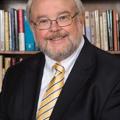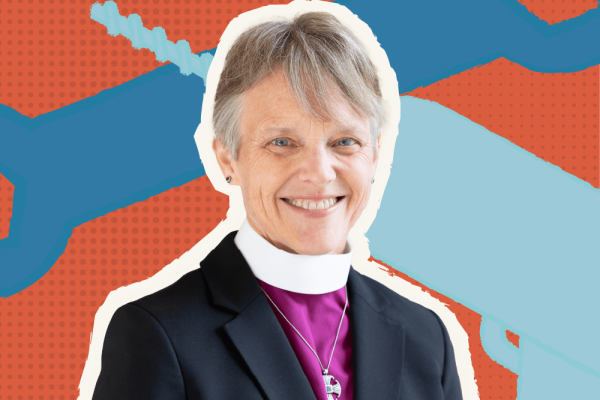For me, clerical sexual abuse is personal, professional, and institutional. It has haunted my service of the church for more than five decades, involving the abuse of people, power, and trust and a clerical culture that enabled it and covered it up. My experiences have taught me several lessons that I believe will be helpful as the church moves forward.
1. There are not enough parents in the room when decisions are made.
In the 1980s, I served Cardinal James Hickey in Washington, D.C. I was summoned to his home where he explained that a senior cleric was accused of abusing young people, and a civil attorney and canon lawyer reported that this abuse likely took place. The bishops and monsignors in the room knew this priest and insisted this was not possible, a terrible misunderstanding or an unfair attack. I did not know the priest and urged his immediate removal. Archbishop Hickey removed him.
These members of the clergy looked at these events through the eyes of a brother priest. Through the eyes of a father, this was the worst thing that could happen short of the death of a child. It undermines trust and faith, priesthood and Eucharist, sexuality and family. There need to be more parents in the room.
2. Lay people need to be much more involved—but need to be independent and focused on the needs of the vulnerable, not the protection of the institution or the care of perpetrators.
I listened as attorneys advised Cardinal Hickey to not to meet with victims and families, acknowledge wrongdoing or apologize and that they would reach confidential settlements to protect the institution. Several of us reminded the cardinal he was a pastor, not a risk manager. I also heard experts insist they could treat and return these priests to ministry. The church paid a terrible price for this terrible advice. Most of these advisors were lay, but they still sought to preserve the institution and focus on “Father,” not on those who had been abused.
This institutional and clerical culture must be broken by the active participation of survivors, parents and, especially, women in these areas.
3. Many bishops are isolated, surrounded by people who reinforce their judgments. Institutional protection, isolation, and lack of connection to the anguish of survivors and their families have often led to a lack of empathy, urgency, and action.
At the United States Conference of Catholic Bishops, I worked with Cardinal Bernard Law during the scandals in Boston. I was a loyal, respectful staff member, but I was also a parent of teenage sons. At one point, Cardinal Law said that “no one talks to me the way you do.”
4. There have to be independent, credible, and effective ways for bishops to be reported, investigated, and held accountable for their behaviors, abuse of power, actions, and non-actions with regard to sexual abuse.
Former Cardinal Theodore McCarrick is a friend and has been a great supporter of my work. I have stood on this stage and saluted his leadership. As a father, friend and ally of Archbishop McCarrick, I am appalled, ashamed, and devastated by his abuse of power and people. Years ago, I saw attacks on the cardinal, including rumors regarding the abuse of power and seminarians. I asked him directly whether they could be true. I can remember where and when he told me that “if any of that were true, I would not be here. These charges from my enemies have been repeatedly investigated by media. If they were true, I would not be here.” I accepted that answer because it seemed inconceivable to me that he could be archbishop of Washington and a cardinal if these charges were true. Independent investigations have proved otherwise.
5. Institutional protection and clericalism can blind us to protecting the vulnerable. Beware of those who seem to use the suffering of survivors to settle scores or to advance their own ideological agendas, left or right, or opposition to Pope Francis.
In 2015, I met with Archbishop Carlo Maria Viganò, the former papal nuncio to the United States, about the work of the Initiative on Catholic Social Thought and Public Life. I also told him I was from Minnesota and had heard from key Catholic leaders there that Archbishop John Nienstedt of St. Paul-Minneapolis had to be removed because of broken trust from his conduct and his failure to protect young people. Archbishop Viganò said that “we cannot give in to the enemies of the church, the media, the attorneys and others who oppose the church.”
6. Defending past choices is no substitute for owning and personally apologizing for past actions that harmed the vulnerable.
Cardinal Donald Wuerl is also a good friend, a leader who was served the church in many important ways and a supporter of the Initiative on Catholic Social Thought and Public Life. I believe he was better than most in dealing with sexual abuse in years past, but that was not good enough. The terrible mistakes we have learned about had devastating consequences for vulnerable people. I believe Cardinal Wuerl has made a wise and necessary choice in asking Pope Francis to accept his resignation so that this archdiocese “to bring healing and a new beginning.”
7. Silence in the face of attacks may be spiritually defensible but is pastorally harmful.
I admire and respect PopeFrancis for his authentic, faithful and powerful leadership. However, Pope Francis has been too slow to understand and act on the moral and spiritual consequences of abuse. I believe his recent efforts to listen to victims and survivors and challenge destructive clericalism and his decision to call leaders of the entire church to Rome offer steps forward. The people of God deserve leadership that listens, responds, and acts decisively, openly, and quickly to bring about genuine accountability, reform, and renewal.
8. Silence makes things worse and is not an option for any of us.
In recent days, I have talked with many friends and some journalists about this crisis. I heard myself say that silence and secrecy were a huge part of what made these horrors possible. I then had to face the fact that I had been silent about my own story of clerical sexual abuse, which I had not shared with my wife, my children, my parents (now deceased) or those who might have done something about it. In my high school seminary, I received a good education and strong spiritual formation. I also suffered several instances of sexual abuse and harassment. I did not endure the worst of what was revealed in the Pennsylvania grand jury report, but this evil was a part of my life.
I recently reported to the provincial of my abusers’ community what had happened to me and who did it. I learned they were deceased and that other allegations against them supposedly came forward only after their death. I have to wonder whether my silence contributed to the abuse of others.
I don’t share these lessons to claim special insight or to offer my example to others. None of us did enough to confront this evil in our church. But I do suggest that these lessons and the principles of Catholic social teaching—respect for human dignity, protecting the weak and vulnerable, accepting responsibility and practicing subsidiarity and solidarity—can lead to action to help rebuild a more faithful and accountable, healthy, and holy church.
Got something to say about what you're reading? We value your feedback!







